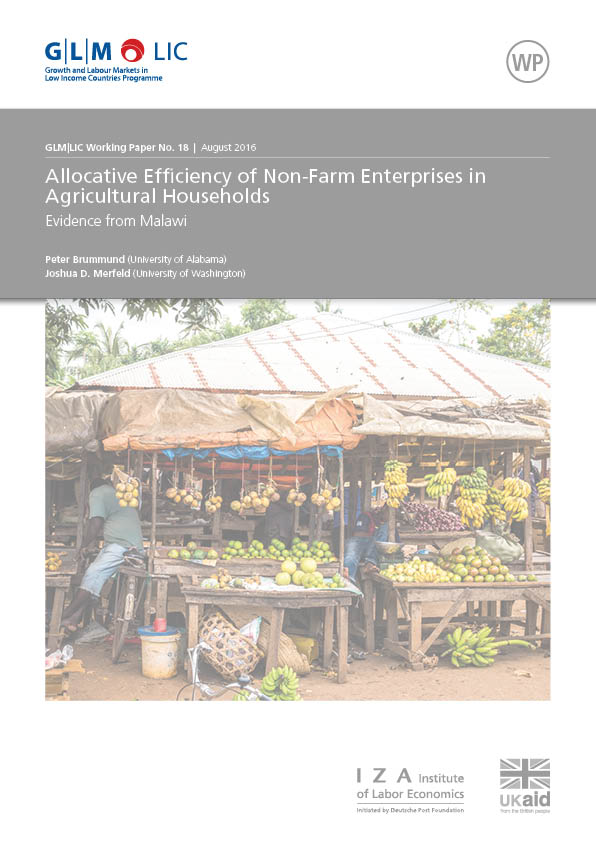According to standard economic theory, households will equate marginal revenue products of inputs across different activities within the household. We test this prediction using data on agricultural plots and non-farm enterprises in Malawi. Specifically, we test whether the marginal product of labor is equal across agricultural and non-agricultural production within a household. To the best of our knowledge, this is the first such test using non-farm data. Weare able to control for many household characteristics using household fixed effects and we find the marginal product of labor is consistently higher in non-farm production than agricultural production. However, when focusing the analysis on households that operate both types of enterprises in the same year, we are unable to reject the null hypothesis of allocative efficiency.

Allocative Efficiency of Non-farm Enterprises in Agricultural Households
Evidence from Malawi
- Peter Brummund
- Joshua Merfeld